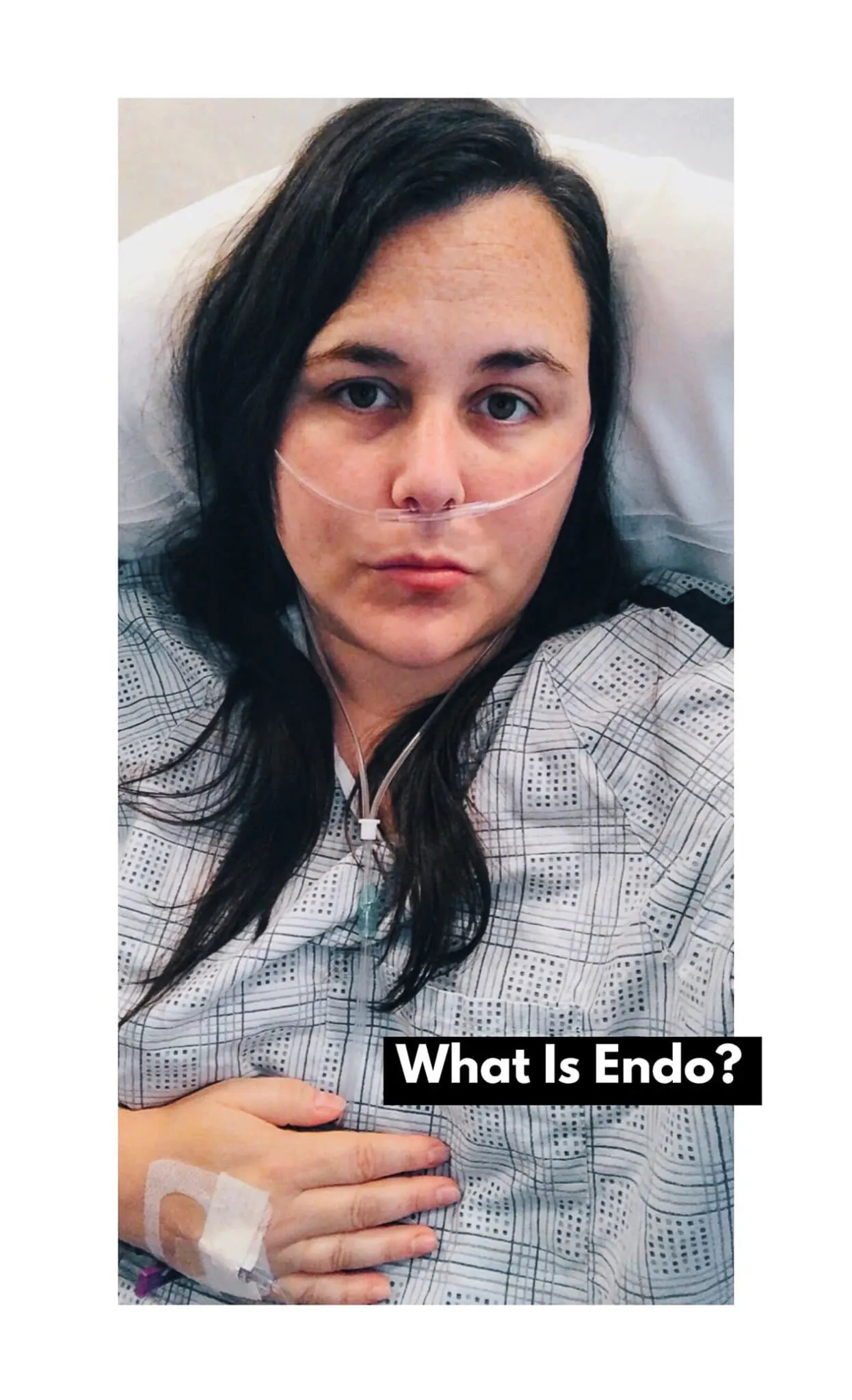What is endo?
Endometriosis is a disease where tissue similar to the uterine lining (but not the same as) is found outside of the uterus and on other parts of the body causing pain, infertility and organ dysfunction.
Endo is complex and incurable. It affects one in ten people assigned female at birth – including trans, non-binary and non-conforming people. And while rare, it has also been found in cis males. Endometriosis is not a period disease, and it affects both menstruating and non-menstruating people.
[socialpug_tweet tweet=”Endometriosis is a disease where tissue similar to the uterine lining (but not the same as) is found outside of the uterus and on other parts of the body causing pain, infertility and organ dysfunction. ” display_tweet=”What Is Endo?”]
What are endo symptoms?
Endometriosis symptoms are chronic in nature and vary individually:
non-menstrual pelvic pain
pain with menstruation and/or ovulation
organ dysfunction and/or failure
frozen pelvis
infertility
back, sciatic and/or leg pain
headaches and/or migraines
painful intercourse or bleeding with intercourse
gastro-intestinal issues (nausea, bloating, diarrhea and/or constipation)
painful bowel movements
extreme bloating (endo belly)
incontinence, frequent urination and/or burning with urination
fatigue
subsequent grief, loss, depression and/or anxiety
Where is endo found?
Endo is found on pelvic and extra-pelvic organs alike. Pelvic endometriosis is traditionally defined as lesions of the Fallopian tubes, ovaries and local peritoneum. And extra-pelvic endometriosis (not rare) is wide-ranging and refers to disease on the gastrointestinal tract, urinary tract, pulmonary system, skin and central nervous system. While rare, endometriosis has even been found on the brain.
How is endo diagnosed?
On average it takes an individual ten years to be diagnosed for endometriosis. The systematic dismissal and normalization of menstrual related pain, lack of technology and education to identify the disease on imaging, morally corrupt pharmaceutical companies and rampant misinformation within the medical community is largely to blame.
While your provider could suspect the presence of endo, the only way to definitively diagnose endometriosis is through surgery, and a biopsy with a pathology confirmation.
How is endo treated?
Surgery with an endometriosis excision specialist is the gold standard treatment of care.
It can be challenging to find a specialist, but it’s important to keep in mind that OBGYNs are not trained to treat endometriosis and finding a specialist is imperative. Feel free to drop me a message if you need more assistance or have any questions finding adequate care.
How are endo symptoms managed?
People with endometriosis require a multidisciplinary approach to manage their symptoms.
Provider may prescribe pain medication, hormonal birth control or hormonal medications to induce a menopausal state (Orilissa, Lupon, etc.). And it’s important to understand that these manage symptoms. They do not treat disease.
Other symptom management can be found through lifestyle changes like eating an anti-inflammatory and nutrient-dense diet and reducing the chemicals in your food, body care and home cleaning products. And holistic tools including behavioral therapy, pelvic floor therapy, acupuncture and massage. As well as yoga, stretching, walking, hiking, nature bathing, CBD and cannabis (wherever legal).
Management tools, whether medications or lifestyle changes, will not make endometriosis go away. They are used to manage the disease. If you’ve adopted all or some of these and you don’t feel relief it is important to remember this is not your fault. They don’t work for everyone, all of the time. They also require privilege, dedication, time, energy and education, and not all people with endo have access to them.

[hr]
This information is not intended to diagnose, treat, cure or prevent any disease.
Sources:
Endo What?
The Center For Endometriosis Care
Nancy’s Nook

Don Crozier
Sunday 6th of September 2020
I'm sorry to hear of your pain. Thank you for educating us!
Jasmine Mastrolia
Thursday 23rd of May 2019
I came to your blog for recipes and stumbled across this page. It took me 12 years to get diagnosed with (stage 4) endometriosis because doctors wouldn't listen. And 14 years to get my hysterectomy, although, it didn't solve the problem it helped some. The adhesions from the endo had completely trapped my appendix, hiding the appendicitis I'd had for a while too. People don't know all the things it can do so it's great to see someone talking about it.
Jana
Thursday 25th of April 2019
Thank you for sharing! This is my first time visiting your page and this is the first article I read because of my experience with endo. I started eating vegetarian and partially vegan because I needed to manage it on my own due to no good treatment medically. My changed diet has worked wonders the past few years! Looking forward to continuing it with your recipes!
Sher
Tuesday 7th of May 2019
Hi Jana - I'm really happy you found my blog, and I hope I'll continue to inspire you to eat plant-based. I am sending you all the endo love, warrior sister, xo.
Elizabeth
Monday 8th of April 2019
Thank you for increasing endo awareness and visibility. You’re doing a very good thing, Sher.
Sarah
Tuesday 2nd of April 2019
Thank you so much for sharing your reality with us. I love you!